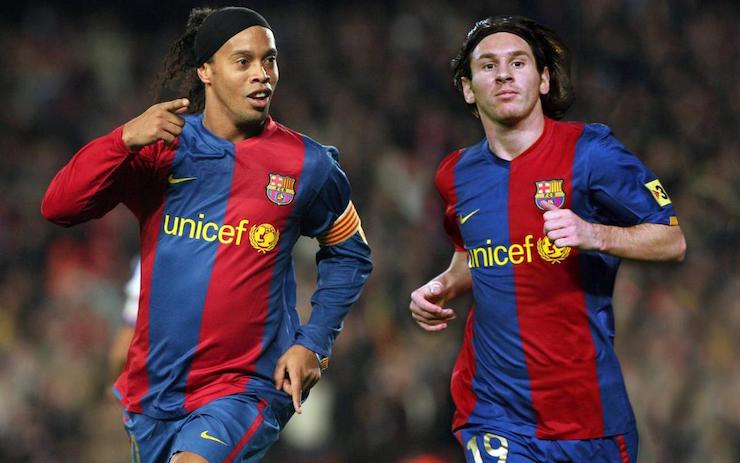Why Youth Soccer Players Should Play Futsal
Futsal has been an important tool for developing youth soccer players for decades — in many parts of the world.

America has begun to realize the player development benefits of futsal and its sheer fun in the last few years. Talented youth players discover that futsal provides amazing training, increases endurance and enhances not only technique but also soccer IQ.
Abdelghani Toumi is the Technical Director for 714Futsal and believes strongly in the power of playing futsal. He holds a U.S. Soccer A License and is a U.S. Soccer Instructor and a former Development Academy (DA) Girls Director in Southern California.
READ: DEVELOPING THE SOCCER DRIBBLER THROUGH FUTSAL
Toumi started playing street soccer and futsal when he was a young boy. Here are his insights into the fast-paced and fabulous game of futsal.
SoccerToday Interview with Abdelghani Toumi
Diane Scavuzzo: Why futsal is great training for youth soccer players?
Abdelghani Toumi: It is no secret that the best soccer players in the world started their development with futsal or street soccer.
For the American children where playing in the street is not an option, futsal offers them a similar environment to play and enjoy an action-packed game in which they can develop fundamental technical skills and decision making to solve problems under real game conditions with repetitive game situations of attacking and defending.

Diane Scavuzzo: What is the value of futsal for youth players?
Abdelghani Toumi: There many values for kids to play futsal, with the most prominent value of developing technical skills to execute play under pressure.
Playing futsal demands precision technique, agility, quickness, and high focus and concentration.
With less intervention from coaches, youth soccer players intrinsically begin to put more focus on technical execution as they look to solve getting out of pressure.
Read: 714FUTSAL KICKS TO HELP IMPROVE YOUTH SOCCER PLAYER DEVELOPMENT
Diane Scavuzzo: Futsal is so fast — How does futsal help players develop both attacking and defensive skills?
Abdelghani Toumi: Futsal is fast, but like outdoor soccer, it has similar constant objectives and functions of attacking and defending.
The one unique feature is that the speed of play is dependent on the players’ technical execution and their understanding of the timing of each situational play.
Additionally, because of the size of the court, youth players experience all functions of the game like attacking, defending, and transition at an increased frequency regardless of the players’ positioning thus allowing them to develop holistically.
At an early age, mistakes are more prominent due to the narrow time frame to execute. However, the more youth players play futsal, the more they begin to cope with the game demands and understand the game tempo of attacking and defending speeds.

Diane Scavuzzo: How does playing futsal specifically help player development?
Abdelghani Toumi: From a technical and individual tactics perspective, the small game environment of futsal develops close ball control, precision passing, controlled dribbling, feinting creativity, understanding when to pass forward or backward, movement to protect or exploit space, timing of when to pass, combine, or dribble, and how to protect the ball or steal the ball in 1v1 situations.
Additionally, from a team play perspective, young players develop leadership skill such as responsibility and initiative, aligning their actions with others, and supporting teammates on and off the court.
Diane Scavuzzo: How does futsal help develop ball control?
Abdelghani Toumi: As I mentioned earlier, futsal offers youth players an unforgiving environment where technical proficiency and ball mastery is the desired commodity.
Players intrinsically begin to adapt to the demands of the fast-paced game.
Players are able to sharpen their technical execution and take advantage of pinpoint passing to create opportunities for themselves and their team. Psychologically, the youth players feel an increased sense of responsibility to commit to practicing passing and control to avoid breakdowns and minimize the potential of losing the ball.

Diane Scavuzzo: How many more touches do an average youth soccer player get on the ball playing Futsal than outdoor soccer?
Abdelghani Toumi: Futsal offers a significant number of touches in a variety of situations requiring a variety of touches to execute play and skills.
There is a need for research-based data in this area, but due to the small game environment of repetitive attacking and defending situations and a high number of connections passing and control, a futsal player on average may well touch the ball 8-10 times more than they would normally touch it in the outdoor game.
This frequency is, of course, dependent on the quality of the opponent and execution of play.
Diane Scavuzzo: Who is your favorite professional Futsal player today?
Abdelghani Toumi: Ronaldinho for sure. He is not a pure futsal player, but his technical proficiency would allow him to star in both the outdoor soccer and Futsal.






